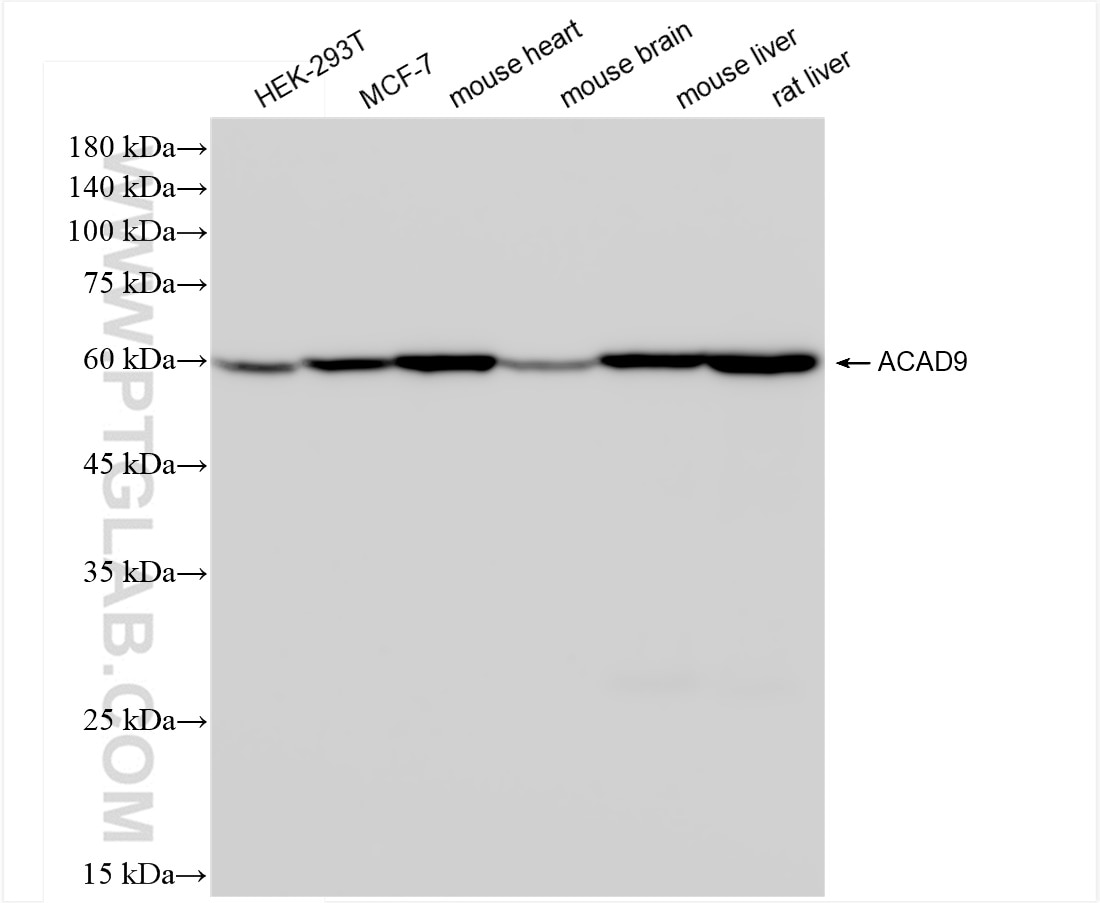Validation Data Gallery
Tested Applications
| Positive WB detected in | HEK-293T cells, MCF-7 cells, mouse heart tissue, mouse brain tissue, mouse liver tissue, rat liver tissue |
Recommended dilution
| Application | Dilution |
|---|---|
| Western Blot (WB) | WB : 1:5000-1:50000 |
| It is recommended that this reagent should be titrated in each testing system to obtain optimal results. | |
| Sample-dependent, Check data in validation data gallery. | |
Product Information
84202-1-RR targets ACAD9 in WB, ELISA applications and shows reactivity with human, mouse, rat samples.
| Tested Reactivity | human, mouse, rat |
| Host / Isotype | Rabbit / IgG |
| Class | Recombinant |
| Type | Antibody |
| Immunogen | ACAD9 fusion protein Ag8414 相同性解析による交差性が予測される生物種 |
| Full Name | acyl-Coenzyme A dehydrogenase family, member 9 |
| Calculated molecular weight | 69 kDa |
| Observed molecular weight | 60-65 kDa |
| GenBank accession number | BC007970 |
| Gene Symbol | ACAD9 |
| Gene ID (NCBI) | 28976 |
| RRID | AB_3671758 |
| Conjugate | Unconjugated |
| Form | Liquid |
| Purification Method | Protein A purfication |
| UNIPROT ID | Q9H845 |
| Storage Buffer | PBS with 0.02% sodium azide and 50% glycerol , pH 7.3 |
| Storage Conditions | Store at -20°C. Stable for one year after shipment. Aliquoting is unnecessary for -20oC storage. |
Background Information
Acyl-CoA dehydrogenases (ACADs) are a family of mitochondrial enzymes catalyzing the initial rate-limiting step in the β-oxidation of fatty acyl-CoA. ACAD9 belongs to the group of ACADs. The deduced 621-amino acid protein has a calculated molecular mass of 68.8 kD. It has an N-terminal leader sequence, 2 conserved motifs shared by all ACAD family members, and a potential N-glycosylation site(PMID:12359260). Defects in ACAD9 are a cause of acyl-CoA dehydrogenase family member type 9 deficiency (ACAD9 deficiency).
Protocols
| Product Specific Protocols | |
|---|---|
| WB protocol for ACAD9 antibody 84202-1-RR | Download protocol |
| Standard Protocols | |
|---|---|
| Click here to view our Standard Protocols |
